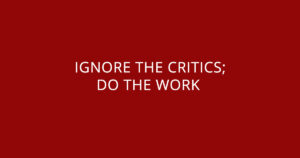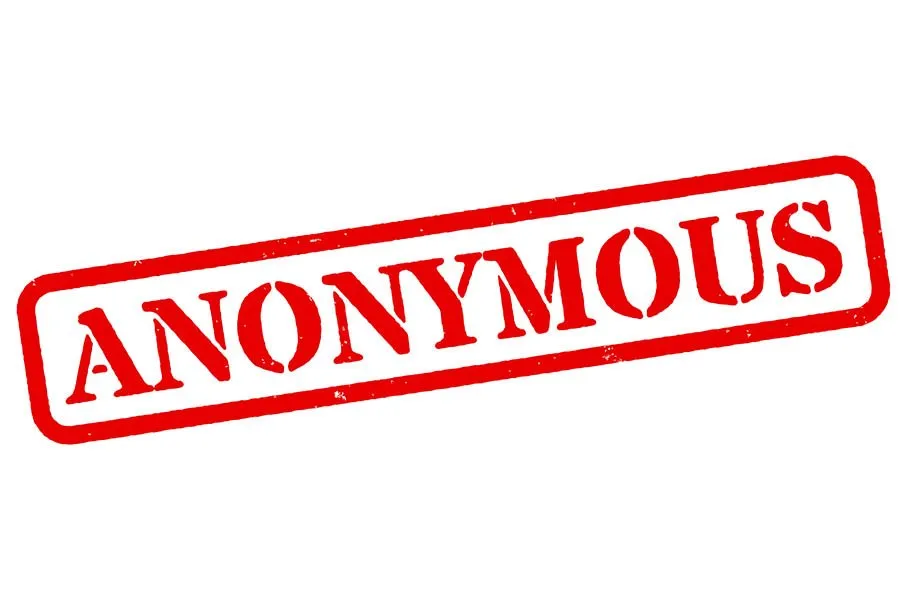Paul Theroux on criticism:
“In the short run, criticism seems to have merit; in the end, criticism is useless—a good book has a long life in spite of anything said about it. Critics at the time mocked Moby-Dick and many other masterpieces. I say: pay no attention, read the book. I used to forbid my literature students at the University of Singapore from reading any criticism at all. It was actually department policy (my department head was the distinguished English writer D. J. Enright). “Just read the text and respond.” Probably not a popular view in English departments now, but I must say that I have a low opinion of English departments in these days of the belief in “curriculum-based trauma”—silly fuckers.”
I must say:
I love this.
I want to append a similar thought when it comes to social media.
I listened to a panel of authors discussing the challenges of criticism and social media. Essentially, the authors said, “People say terrible things on social media. The social media mob can be awful. It’s so hard to listen to people criticize your work with such cruelty.”
My advice:
Stop listening. If you are impacted by the opinions of critics, readers, strangers, and idiots on the internet, stop looking. Why are you giving even a modicum of attention to some stranger’s opinion in Peoria?
If the critiques of strangers on the internet negatively impact you, don’t look.
Charlie recently landed on the Amazon page for my latest book “Stories Sell.” He tapped me on the shoulder and said, “Hey, Dad, check it out. Your book has a 4.2 rating and no one-star reviews.”
“That’s great,” I said.
“You didn’t know?” he asked.
“I had no idea,” I told him. I explained that looking at those reviews does nothing to improve my life, so I rarely pay them any attention. I’d rather spend my time making the next thing.
Admittedly, I was happy to hear that readers liked the book, but if they didn’t, I couldn’t revise a chapter or ask them to reconsider their opinion, so why bother investing any time in looking?
And I’m someone rarely bothered by criticism. I’m blessedly immune to most forms of public attack and personal insult. If anyone can handle online criticism, it’s me. I’ve been victimized by some of the most relentless, unorthodox public attacks you could imagine.
Anonymous cowards trying to ruin my career. The MAGA mob hammering away at me online day after day. Angry readers of my blog, railing against one of my more ill-informed opinions.
I am an expert at managing and dismissing unwarranted and unwanted critiques.
Yet I mostly ignore it all.
So, if online criticism bothers you, why invest time and energy looking?
Most of the time, my interaction with social media amounts to this:
I step onto the platform, place my content, and leave. Often, I never return. Other times, I will briefly step back onto the platform to see if I’ve stirred up a hornet’s nest or made someone exceedingly happy. Sometimes, I will spend five minutes swatting at the hornet or expressing gratitude for the kindness of others, often while standing in line somewhere.
Other times, I ignore the hornets and walk away.
I do this because social media is ethereal, flimsy, and impermanent. If I write something that enrages one person or one hundred people, I know it will be forgotten in a day or two and sometimes an hour or two.
Noting on social media matters. It is a momentary blip — easily ignored and quickly forgotten.
So if it hurts you, why engage?
Sometimes, a thoughtful person will offer me a new perspective or engage in an intellectually honest debate, and in those cases, I may jump into the fray, but most of the time, I plant my flower for the day and move on.
Paul Theroux said it best:
“In the short run, criticism seems to have merit; in the end, criticism is useless.”
Play the long game. Ignore the daily shouts from the peanut gallery. Spend your time making stuff. Doing stuff. Establishing a reputation as someone who does these things.
You’ll be a lot happier.







